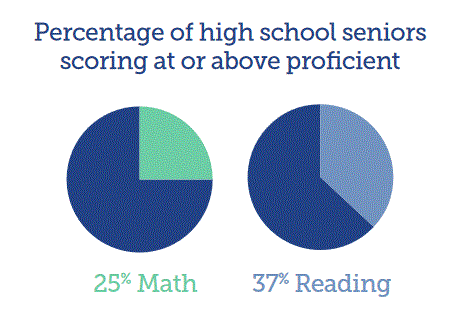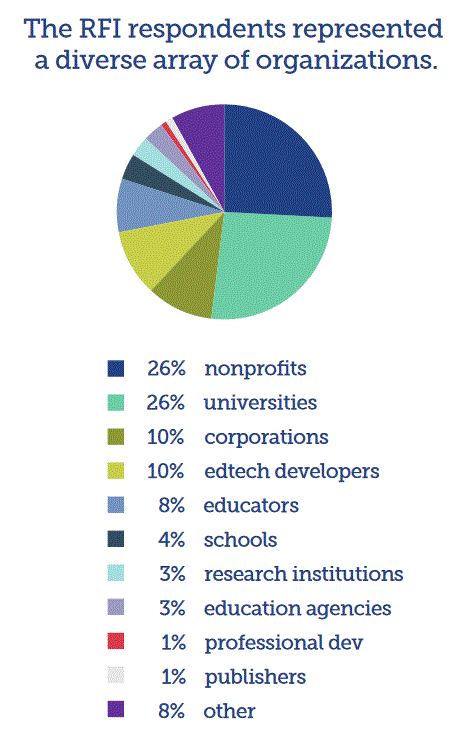In this week’s seminar, Prof Michael Thomas discussed the background to 
 and the findings of a US initiative set up to consider the possibility of transformative changes to education.
and the findings of a US initiative set up to consider the possibility of transformative changes to education.
The Chan Zuckerberg Initiative (CZI) and the Bill & Melinda Gates Foundation (BMGF) are jointly exploring whether transformative education solutions can be developed through an accelerated research and development (R&D) effort. The approach would bring together interdisciplinary teams from education research, human development research, learning measurement, evidence-based technology-enhanced practice, professional development, neuroscience, and other fields.
In May 2018, the two philanthropic organizations came together to seek new approaches from practitioners, researchers, and the public to a set of education challenges with enormous implications for the success of all students – and especially those who have faced early trauma or learning challenges. They put out a ‘Request for Information’ (RFI) from a wide range of research, educational, policy, non-profit and business groups to seek information for innovative strategies to help address three pressing challenges they saw:
■Writing: Preparing all high school graduates for the type of nonfiction writing demanded in college and the workplace by developing the necessary habits, skills, and strategies;
■Maths: Preparing all students to deeply understand and apply mathematical skills and knowledge and related mindsets;
■Executive Functions: Improving the ability of all students to think flexibly, wrestle with multiple ideas, and manage their thoughts and actions
The main findings in these areas were:
Writing
The RFI submissions in writing focused on three big areas:
1. Writing for the real world:These approaches provide students with opportunities to engage in writing that more closely mirror the demands of college and the workplace. These range from a partnership with a science museum to promote real-world science writing to developing a community-based peer coaching model.
2. Getting students more feedback:Many of these submissions focus on developing students’ writing skills or providing feedback to students from a diverse group of readers, including outside experts such as journalists, to complement classroom teachers.
3. Next generation writing environments:A number of submissions focus on how to put technology at the disposal of teachers to help personalize writing instruction. These range from a tool to capture qualitative data from students’ drafts to help teachers see patterns in student writing, to an online learning environment that would make visible students’ contributions to peer feedback, so that teachers would know when to coach the class or an individual learner.
 Mathematics
Mathematics
The RFI submissions in mathematics focused on four key topics:
1. Practice and feedback: These approaches provide students with rich opportunities to engage in deliberate practice and receive actionable feedback that leads to deep mastery of foundational math knowledge and concepts. Many of them employ digital games, intelligent tutoring, and technology-based platforms to tailor learning experiences for individual students.
2. Novel instruction and experiential learning:These approaches provide students with the opportunity to discuss real-world math problems of interest to them to help develop a positive math identity. One proposal invites students to consider the real-world and ethical implications of math questions.
3. Improved measurement systems: These solutions propose to narrow the gap between assessment and instruction by providing richer indicators of student progress.
4. Empowered teachers: These submissions propose using technologies that deliver real-time information on student learning to teachers with recommendations for adjusting instruction. The intent is to support teachers to differentiate their approaches for students with a wide range of proficiency levels, as well as to enable teachers to try new pedagogical strategies
Executive Functions
The RFI submissions in this area fell into three broad buckets:
1. Measures of executive functions: There were promising approaches to developing better measures of executive functions across basic and applied research. Such measures are needed to understand which interventions best target individual students’ needs and to help teachers make informed judgments. Some submissions offer tools to help teachers understand and support students’ development of executive functions, and to provide teachers with professional development in this area.
2. Interventions to build executive functions:These submissions include ideas for scaling some existing products as well as for basic research. They range from low-cost, targeted strategies that represent the essential “active ingredients” in effective programs to develop students’ social, emotional, and cognitive skills, to efforts to build adults’ knowledge and development of executive functions, which research has found is strongly associated with children’s development of such skills.
3. Tools and techniques to support programs that develop executive functions:These ideas would support and buttress existing efforts to develop executive functions
The full findings are available in this report. More information on the background to the RFI can be found here. And their website also has useful resources for teachers and educators which are regularly updated.

